Zero Waste
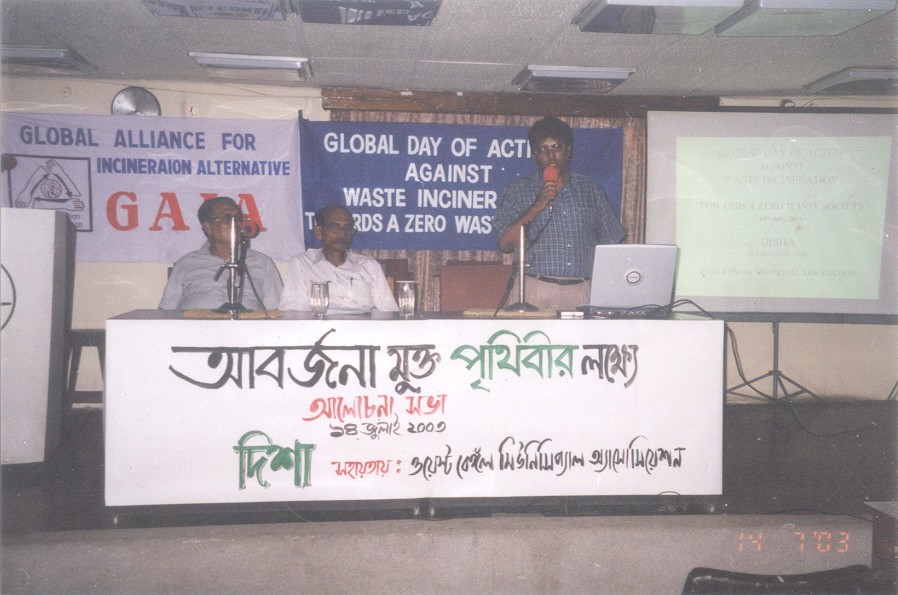
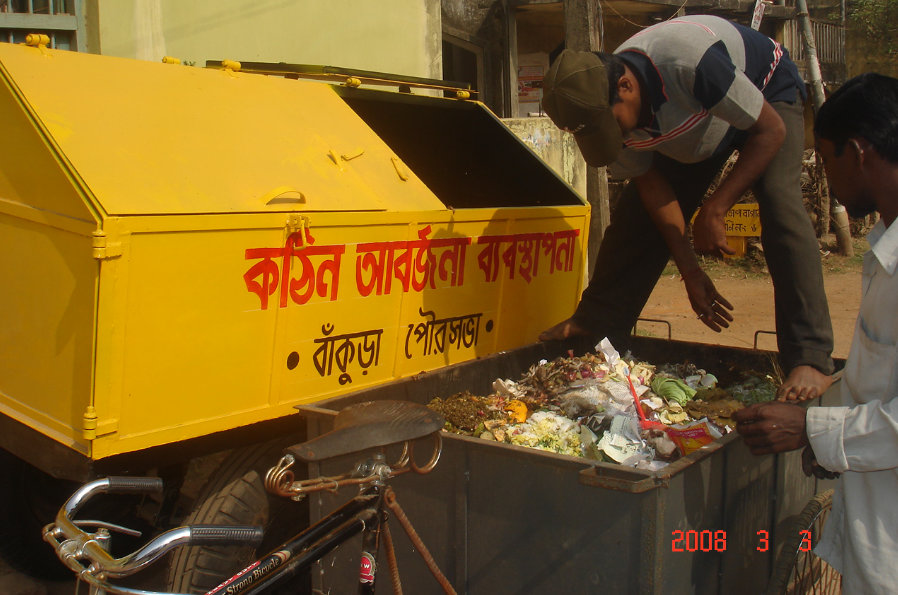
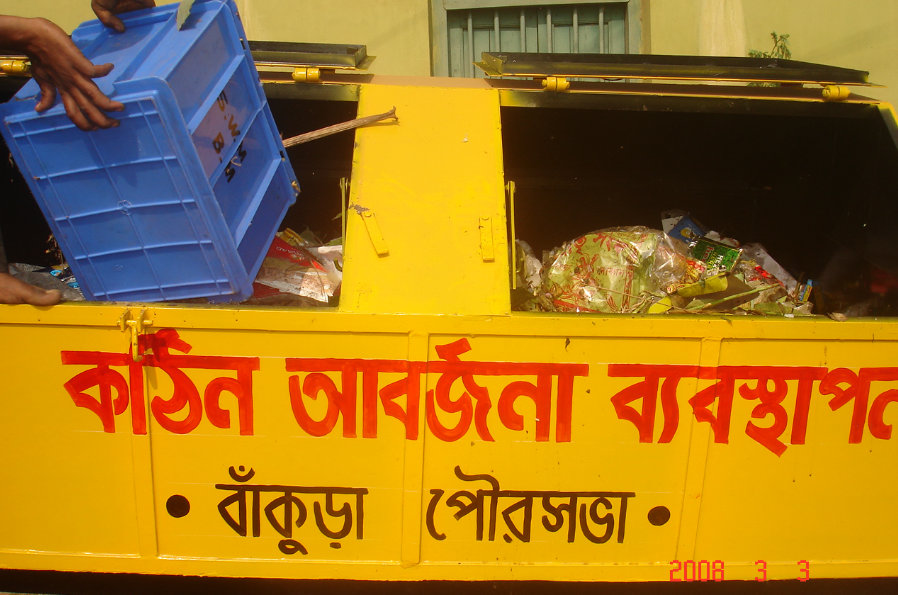

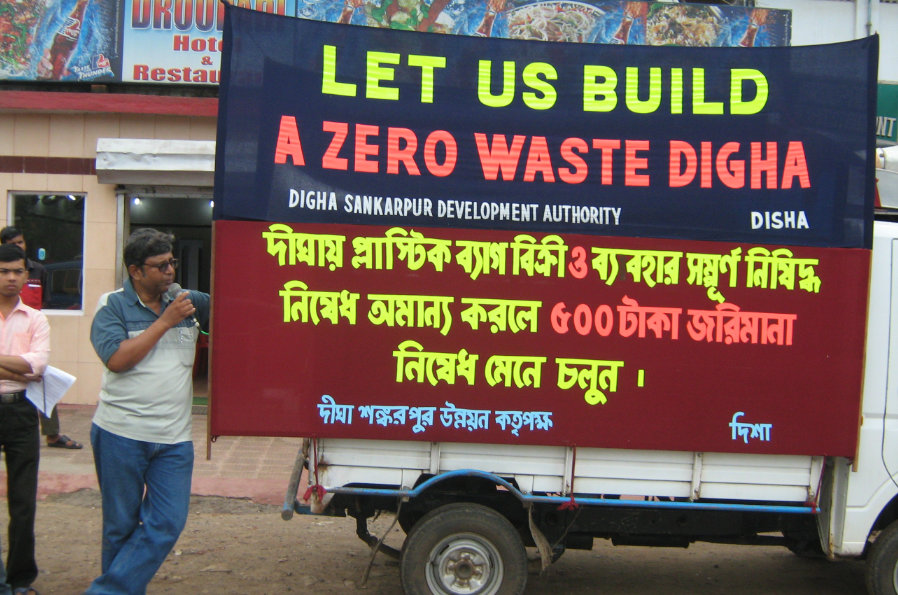
Over the decades and centuries of industrialization, improper handling, and disposal of waste have wreaked havoc on the environment and public health across the world. With time, our lives have become increasingly dependent on industry-processed inorganic materials such as those based on heavy metals, plastics, and electronic devices—improper disposal of which leads to severe environmental and health repercussions. Other than devastating the ecology, improperly disposed and accumulated waste makes the air, water, and land in and around cities, towns, and of late, even villages unsustainable for human use and noxious for human health.
From DISHA, since our inception in 1995, we have been active in addressing and redressing these issues. Over the years, through a host of activities—including, but not limited to, constructive intervention at the communities-level and awareness campaigns—we continue to promulgate and provide support towards the attainment of Zero Waste solutions, based on the principle: Reduce-Reuse-Recycle. Other than working towards the development and implementation of holistic solutions in terms of management, handling, and disposal of municipal waste, our focussed areas of work include the issues involved with Bio-Medical Waste, E-Waste, Plastics, and other Poly Vinyl Chloride (PVC)-based waste and Persistent Organic Pollutants (POP) such as mercury- and fluoride-based waste. Keenly aware of the severe health and environmental repercussions of improper management, handling, and disposal of such hazardous types of waste, we have been continuously working in various parts of south Bengal where the effect of such waste is acutely felt.
Municipal waste means everyday items that are discarded by the public. The key to a wholesome quality of life in any city, town, village, or other human habitat lies in adequate and eco-friendly management and disposal of the municipal waste that is generated from there. From DISHA, we strive to implement a community-based low-cost waste management system depending upon source segregation, composting and bio-methanation of wet waste, recycling of dry waste, utilising available knowledge, expertise, and infrastructure, and empowering waste pickers by ensuring their involvement in the municipal waste management systems.
- From 1995 to 1997, we conducted a clinic for waste pickers (rag pickers) for two years at the Dhapa municipal solid waste (MSW) dumpsite of Kolkata. During this period, we also studied the socio-economic and health status of the waste pickers and monitored the air and water quality of the Kolkata MSW dumpsite area. In 1997, we published a Rapid Assessment Survey of the Health and Environmental Impacts of Solid Waste Recycling based on our findings. During this period, we also studied the route of recyclable waste from generation to recycling industries and the price changes at different stages. These studies identified some key issues regarding the health, livelihood, environmental, and socio-economic conditions of many marginalized people who are involved in municipal waste handling.
- We have also been campaigning for the implementation of Zero Waste solutions and to generate awareness on the impact of waste on public health, livelihood, and the environment. In 2003, we published a booklet Aborjona Mukto Prithibir Lokkhe (Towards Zero Waste) on these issues. In Disha, we organized the Campaign for Environment Friendly, Community-Based Municipal Solid Waste Management in West Bengal to evaluate the status of municipal solid waste management in West Bengal and develop awareness and concern among citizens and municipalities. Based on the rich experiences gathered through this campaign, we published the booklet Poshchim Bonge Poribeshbondhu Nagorik Nirbhor Pouro Aborjona Byabosthaponar Lokkhe Prochar Obhijan (Campaign for Environment-Friendly Community Based Municipal Solid Waste Management in West Bengal).
- Over the years, we have provided waste management solutions that are sustainable, eco-friendly, and safe in terms of health and the environment in and around Kolkata and across various other municipalities and Panchayat areas in South Bengal. Other than the KMC, we have also assisted the municipal bodies of towns like Chandan Nagar, Kanchrapara, Chunchura, Bhadreswar, Kalyani, Bankura, Medinipur, Budge Budge, Digha, Chakdaha, etc. in facilitating municipal solid waste management in those areas. We continue to assist several municipal bodies in the effective implementation of the Municipal Waste Management Rules, 2016. In the last decade, we have also increased our outreach to two Gram Panchayats: Jogeshganj and Gobindakhati in North 24 Parganas, close to the Sundarban forests.
- In 2007, we conducted a survey across 38 municipalities and 3 municipal corporations in Kolkata Metropolitan Area on compliance with the Municipal Solid Waste (Management and Handling) Rules, 2000. We have also assisted the Bankura and Medinipur municipalities in implementing the Municipal Solid Waste Management and Handling Rules, 2000 by providing an efficient and low-cost collection system.
- As a part of our work, we provide training to waste pickers on methods and practices of management, handling, and disposal of waste that are safe for their health and for the environment. Based on our experiences, we have also prepared and published training manuals. For example, in 2007, we published the booklet Pouro Aborjona Bishoye Proshikkhon Pustika, Kanchrapara Municipality (Training Manual on Municipal Waste Management for Kanchrapara Municipality). In that same year, we also published an also the booklet Ekti Shohorer Porichchhonno Hoye Othar Notun Pother Panchali: Kanchrapara Municipality (Kanchrapara Municipality: Saga of Transformation into a Clean City) based on the state government- and municipality-backed “Clean City” drives that we conducted in the town Kanchrapara of the Hooghly district.
- We have also organised training sessions supported by Kolkata Urban Slum Improvement Project (KUSP) in Kanchrapara Municipality, Budge Budge Municipality, etc. At the national level, we provided training on municipal waste management at the vocational training sessions organised by All India Hygiene and Public Health Institute in _____. Trainees from municipalities, urban bodies, and pollution control boards from different states of India took part.
- In 2017, we conducted two surveys: one being a Rapid Assessment Survey on the Socio-Economic Condition of Waste Pickers in the Kolkata Municipal Area, followed in quick succession by a Study on the Physical Assessment of Composition and Ratio of Contents in Municipal Waste in Kolkata Metropolitan Area. Our studies revealed that nearly 3000 waste pickers are involved with manual or semi-manual waste disposal activities at the Dhapa dumpsite, and they face high degrees of occupational health and safety hazards, along with socio-economic marginalization, impoverishment, and the consequent lack of the ability to access the healthcare, education, and other amenities necessary for survival and sustenance.
- We continue to work towards improving the living conditions of the waste pickers who work In the KMC dumpsite at Dhapa. To assist them in income generation, we have strived to ensure their professional engagement in the waste management of big events. To this end, we are overseeing the waste management of the annual Tata Steel Marathon since 2017. In the process, we have ensured the professional engagement of these waste pickers in the same. During the Coronavirus pandemic and the consequent lockdowns of 2020-21, this event could not be held, but it has resumed since 2022 and so has our involvement in its waste management.
- During that pandemic and lockdowns, we provided some relief materials in the form of rations to help the economically disadvantaged waste pickers who handle municipal waste for the KMC at the Dhapa dumping ground of Kolkata.
Awareness campaign about unsound incineration practices
In the past, from DISHA, we had campaigned extensively to spread public awareness about the ill effects of incineration of waste, which are:
(a) incineration destroys the wealth contained in waste,
(b) incineration pollutes the environment and
(c) incineration destroys all the good practices of waste minimisation, reuse and recycling of dry waste, composting and bio-methanation of wet waste, etc.
In the past, we had conducted various campaigns in the past to raise awareness about these well-researched aspects of the impact of incineration of waste, especially bio-medical waste.
- In 1996-97, we participated in a campaign to revise a World Bank project proposal, to install incinerators at every hospital and medical centre in West Bengal having 300+ beds.
- In 2003, a large private Central Biomedical Waste Treatment Facility was set up at Belgachhia, Howrah which conducted incineration of soiled biomedical waste in contravention of the Central Pollution Control Board. We campaigned to raise awareness about the environmental degradation and health risks that such incineration would lead to.
Dhulagarh Waste Management Unit
Since 2016, we are running a waste management centre at the Dhulagarh Truck Terminal at Howrah. It is a part of our flagship solid waste management initiative “Clean My Transport Terminal.” The activities we conduct include facilitation and support in ensuring daily cleaning, street sweeping, collection of waste from the shops in and around the truck terminal, source segregation of waste, arrangement of recycling of dry waste, preparation of compost and vermin-compost from wet waste, involving the local communities in the daily activities, and campaigning for awareness generation, behavioural change and practice of social hygiene among the truckers’ community. One of our vermin collection units, after being destroyed by the Amphan cyclone of 2020, was promptly and efficiently reconstructed, so much so that it endured the Yaas cyclone that followed in 2021 without any damage. In the last few years, we have succeeded in increasing compost production by assisting in digging more compost pits, and plans are in place for the development of a garden in a 1000 sq. ft. area adjacent to the terminal. For more information, kindly visit the dedicated and regularly updated page on the Dhulagarh Waste Management Centre.
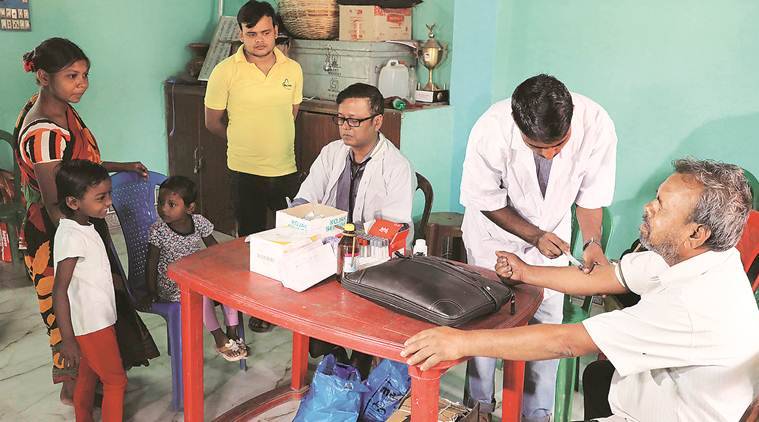
Waste generated in the process of diagnosis, treatment, and prevention of diseases is called bio-medical waste. Such waste contains a host of harmful pathogens and chemicals which are hazardous for health and the environment and is a major public health and environmental concern. Unless segmented at the source and properly treated through steam sterilization and chemical disinfection and disposed of with adequate safety protocols in place, bio-medical waste has the potential to wreak havoc at a mass level.
From DISHA, we have campaigned extensively for the safe management of bio-medical waste using scientific, eco-friendly, and sustainable methods. We have provided training to the hospital cleaning staff for the implementation of safe handling practices. We have also conducted several studies on the various aspects of safe and eco-friendly handling and disposal of bio-medical waste, these studies have helped us identify the pressure points in this regard, and work towards addressing and redressing the same.
- Since 1996, we have been organising public campaigns and serving as a watchdog on the safe management of medical waste. In 1997, we conducted a baseline survey on the status of disposal of medical waste at four important private hospitals of Kolkata, being the Woodlands Hospital, B. M. Birla Heart Research Centre, Kothari Medical Centre & Research Institute, and Calcutta Medical Research Institute. In _____, we facilitated the setting up of a safe waste management project in a specialized rural hospital in _____, an underdeveloped area having no municipal facilities.
- In 2002-03, we did a Waste Audit of 20 secondary-level government hospitals in West Bengal under the West Bengal State Health System Development Project. The study contributed to the designing of more appropriate waste management systems in healthcare institutions and indicated the possibilities of resource recovery by assessing the amounts of compostables and recyclables in healthcare waste. In 2003, under the same government project, we also monitored healthcare waste management in 100 government hospitals spread over 14 districts in West Bengal. Our study has shed vital light on the problems and prospects of implementing the system. In the course of this work, we also provided capacity-building-oriented training to hospital cleaning staff on ensuring hospital sanitation through proper management, handling, and disposal of bio-medical waste and published a detailed report and a training manual based on the same in 2004.
- On realizing the lacuna in the assessment and monitoring of the management of bio-medical waste in primary and community health centres and sub-centres, outreach stations at the Block, Panchayat, and Ward levels, we conducted research and produced a Literature Review for Models and Practices on Bio-Medical Waste Management with focus on Primary Health Care in 2005-2006. Based on the findings and spot surveys conducted at many rural healthcare units in West Bengal, we developed a Strategy Action Plan for the Management of Health Care Waste for the Health and Family Welfare Department, Govt. of West Bengal in 2007. Later in that same year we prepared and published an implementation plan on Bio-Medical Waste Management vis-à-vis the rural healthcare system for the district Bankura, West Bengal.
- In 2008, we were entrusted by the West Bengal Pollution Control Board to conduct a study to assess the quantity of bio-medical waste generated and the status of its management in the state. The study report, titled Bio-Medical Waste—Inventory and Status of Management in West Bengal, was published in 2010 and submitted to the Central Pollution Control Board, Government of India.
We continue to offer our services to help healthcare institutions, health, and municipal authorities towards safe and eco-friendly management of bio-medical waste.

Heavy metals such as mercury, lead, cadmium, chromium, and other heavy metals have long half-lives, which is to say that they take a very long time to disintegrate into the environment. These hazardously toxic substances constitute the most harmful contents of industrial refuse. Being a part of many products of everyday use such as DDT and a host of other pesticides, batteries, thermometers, etc., waste generated from households also contains such toxic refuse.
Being well aware of the large-scale environmental degradation and health issues caused by these toxic substances when waste containing the same is managed improperly, we have been actively campaigning for the effective implementation of the Stockholm Convention on Persistent Organic Pollutants, 2001, which India has since ratified. We endorse restricted and minimal use of toxic substances such as mercury, lead, cadmium, chromium, etc.
- In ____, we conducted a study on how improper handling of mercury at school and college laboratories poses health hazards for students, teachers, and staff and can potentially devastate the general environment.
- We have published two awareness-oriented handbooks titled POPs: Persistent Organic Pollutants (POPs): Campaigner’s Hand Book in English in 2005 and Prithibi Hok POPs Mukto (Make a POPs Free World) in Bengali in 2006.
- Being acutely aware of the health and environmental hazards posed by mercury, we conducted extensive studies and published multiple reports and booklets. We conducted detailed studies on mercury contamination in fish from different locations in West Bengal and published the report, titled Fishing Toxics: Mercury Contamination of Fish in West Bengal. In 2009, our findings and analyses were incorporated into the global report Mercury in Fish: A Global Health Hazard, and placed before the Governing Council of the United Nations Environment Programme (UNEP). In that same year, we published a book in Bengali on the issue of mercury pollution, titled Chokchoke Bish: Paroddushon (Shining Poison: Mercury Contamination).
- In 2010, we conducted a focused study on mercury contamination in hospitals and published a Bengali book titled Hashpatale Paroddushon (Mercury Contamination in Hospitals).
- That same year, we also conducted a study on heavy metal contamination in the drinking waters in the Kolkata Metropolitan Area. While doing the study, we found high lead levels in drinking water found in both tube wells and tap water and highlighted the same in our report published in 2011.
We have also conducted studies on and sought to raise awareness about the hazards posed by yet another POP: fluoride. Based on the same, we published a Bengali book titled Fluoride Dushon (Fluoride Contamination), also in 2011.
Disposable plastic materials such as plastic carry bags constitute a grave problem in waste management. The form of plastic with the most pernicious health and environmental impact is Poly Vinyl Chloride. Being aware of these concerns, we have been actively campaigning for restrictions on plastic disposables in general and a ban on polybags.
- In _____, supported by the Department of Environment, Government of West Bengal, we surveyed the use of polybags and plastic cups at different places in the state, with a special focus on the Himalayan district of Darjeeling, and in the coastal town Digha, these two being the two most popular tourist destinations of West Bengal. We have done successful campaigns to bring to attention the large-scale health and environmental hazards posed by improper management of plastic waste, leading to the existing legal ban on polybags in the hills, forests, and coastal regions of West Bengal.
- Since our inception till now, we have been continuously conducting campaigns for awareness on judicious management of plastics- polymers- and PVC-based waste, reduction of plastic waste, and the imposition of a ban on disposable plastic items such as polybags in Kolkata and its neighbouring areas as well as in the ecologically vulnerable Sunderban Biosphere Reserve. Over the past few years, we have conducted extensive campaigns, particularly in the markets of south Kolkata highlighting the issue of pollution caused and health hazards posed by improper management of plastic- and PVC-based waste.
- For the last five years, we are also conducting supporting the local community in the rural areas adjacent to the Sunderban forests, particularly with the three Panchayats of Jogeshganj, Gobindakhati, and Kalitala in the Hingalganj block of the North 24 Parganas district. By working closely with the Gram Panchayat committees and the market committees, and the villagers, we continue to support the community to get rid of the menace of plastic-based pollution by providing specialized management solutions for plastic waste.
- Our campaigns and activities continue to focus on the effective implementation of the Plastic Waste Management Rules 2016, as amended by the Government of India in 2021, both at a community level and in terms of awareness generation.
We have also published a couple of books/ booklets in which we have highlighted the health and environmental hazards posed by improper management of plastic waste. In ______, as a part of our campaigns on the issue of pollution caused by plastic waste, we published the awareness-oriented book Polybag, Polycup: Poribesh Dushon ki Choltei Thakbe? (Polybag Polycup: Will Environmental Pollution Continue?) in Bengali. Again, in _______, we published an awareness-oriented booklet, also in Bengali, titled: Poly Vinyl Chloride—Ek Bipojjonok Plastic [Poly Vinyl Chloride (PVC)—A Hazardous Plastic].
Discarded electronic products constitute e-waste. As more and more electronic devices and gadgets flood the markets and households, a huge bulk of such products are discarded regularly. As of today, nearly 60 million metric tonnes of e-waste are generated globally every year, and the volume is rising steadily. Between 2010 and 2019, global e-waste generation shot up by roughly 60 percent.
E-waste is a cause of major environmental pollution and poses serious health risks to individuals and communities. Being an organisation that works extensively on health and environmental issues, from DISHA we assist in the implementation of safe and eco-friendly solutions for e-waste management.
Since 2012, we had assisted in the promotion and development of the P.U. Steel & Electroprocess, an e-waste dismantling unit at Patulia in North 24 Parganas. After it became fully functional in 2018, we continued to provide handholding support in the running of the unit. Monitored by the West Bengal Pollution Control Board, it is one of the only two functional e-waste dismantling units in West Bengal, and annual reports reveal that it has been functioning quite efficiently since it commenced operations. In recognition of our work, the Kolkata Municipal Corporation is now collaborating with us in ensuring efficient, safe, and eco-friendly disposal of such waste.
From DISHA, we are glad to state that we do not stand alone in our various activities aimed at facilitating safe and eco-friendly waste management solutions. In close collaboration with multiple groups of rag-pickers, waste handlers, cleaning staff, sanitation workers, truck drivers, market society members et al at the ground level, with various municipal bodies including municipal corporations, municipalities, and Gram Panchayat at an administrative level, and with various rural and urban environmental collectives, institutions, organisations, and platforms at the state, national and international levels, we continue to work tirelessly towards a Zero Waste future.
We continue to help local bodies, organisations, community groups, collectives, and concerned citizens in setting up safe, sound, and eco-friendly waste management facilities and campaign for the generation of awareness about the health and environmental ramifications of improper waste management. The practical knowledge gathered in the process and continuous interactions with people engaged in sustainable management of waste has inspired DISHA to work towards a zero-waste society based on community-based, eco-friendly, and sustainable management of solid waste.

Stop Waste-to-Energy Plants Reduce – Reuse – Recycle
Letter of Concern sent to WBPCB and Department of Environment, Govt. of West Bengal by DISHA on 19.9.09.
Pollution fear Over Howrah plant
DISHA is a founder member of Waste Not Asia,which later became a constituent of GAIA (Global Alliance for Incinerator Alternatives) .
